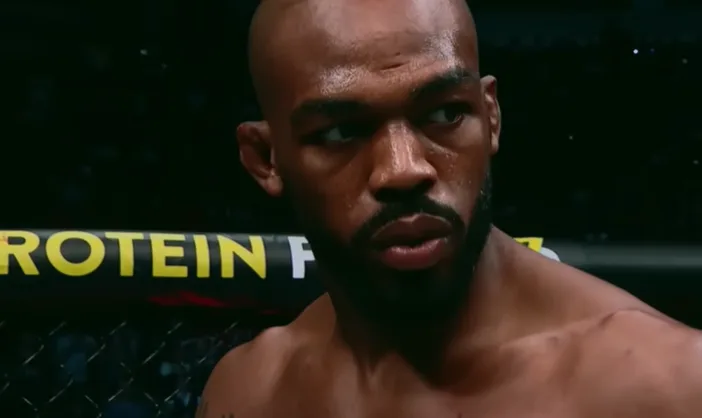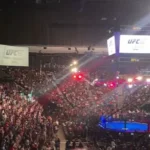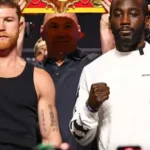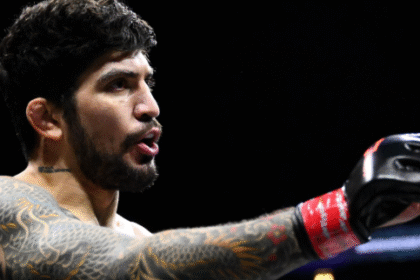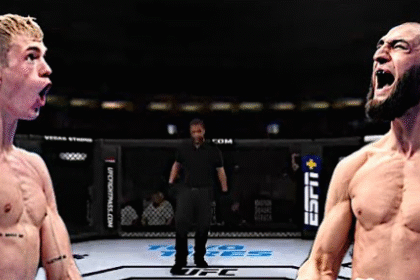The Ultimate Fighting Championship is about to experience an unprecedented moment in its history because President Donald Trump has announced that he would host a UFC fight card in the white house next year. The event is going to place the sport on a world stage never before seen in history and attract enormous attention and scrutiny.
The Return of “Bones”: Convenient Timing?
In the midst of the speculation of this innovative announcement, an old, but long-lost element re-emerged with a bang: Jon “Bones” Jones. Only two weeks ago, the former heavyweight champion had announced a retirement, in essence, leaving the octagon instead of meeting the leading contender, Tom Aspinall. The news of an event in the White House was, however, a potent trigger. Jones was soon back in the drug testing pool and training. He made it known publicly that he had returned at a new level of commitment, which he said, To be able to entertain the country and the world at the House is the world to me. I’m back.” His sudden coming back just at this moment in time, a period when such a monumental event was to occur, has had its own raised eyebrows. The Aspinall Shadow: Why Dana White Said No
Despite Jones’s clear enthusiasm and his legendary status as one of MMA’s greatest talents, UFC President Dana White has drawn a firm line: Jon Jones will not be featured on the White House fight card. This decisive stance stems directly from the very ‘retirement’ that preceded Jones’s comeback – a situation marked by significant friction surrounding a potential bout with Tom Aspinall.
Fans were electric with anticipation for a Jones-Aspinall clash, but Jones ultimately chose to step away rather than take the fight. This unexpected move, coupled with his long history of controversies and unpredictability outside the cage, appears to have hardened White’s long-standing “soft spot” for the superstar into an unyielding resolve.
The Direct Exchange: An Apology and a Hard Truth
The conflict resulted in a face-to-face confrontation between Jones and White, which was just disclosed by the UFC President himself in The Zach Gelb Show. Jones made the first contact in the form of a text message, where he said he was sorry about his most recent activities: I am sorry with how all this worked out [the Tom Aspinall fight]. I would like to battle the White House, and I am not joking about that.
The reply of White was straightforward and simple, and there would be no bargaining. I like him to contact us, I need people I can rely on in this struggle, White explained. I am familiar with who they are; I know who they are not.
A Non-Negotiable Stance: Reliability Above All
In the case of Dana White, the stakes of White House event are too high to take any chances. This is an event of such great scale that it requires maximum professionalism and reliability of all participating athletes. The unpredictability that has followed Jon Jones, especially lately with his choice to withdraw from the big fight, is a major gamble in the mind of White.
It is clear that White does place more value on fighters who will turn up, fight without fuss, and stay true to their word, a quality which, in this case, he does not feel Jones has achieved of late. It is a bitter pill that Jones will have to swallow, particularly following his provocative and audacious I am back statement, and in the case of an event so big, the UFC President cannot risk any curve balls.
The Path Forward: Rebuilding Trust
While Jon Jones remains an undeniable legend in the sport, this exclusion from such a historic event serves as a stark reminder of the consequences of past decisions. To truly regain the trust of Dana White and, by extension, the broader fanbase, Jones may need to demonstrate sustained reliability and commitment, not just when the biggest opportunities arise, but consistently, both inside and outside the octagon. This moment could be the wake-up call needed for him to rebuild a foundation of dependability that has, at times, wavered throughout his illustrious career.

